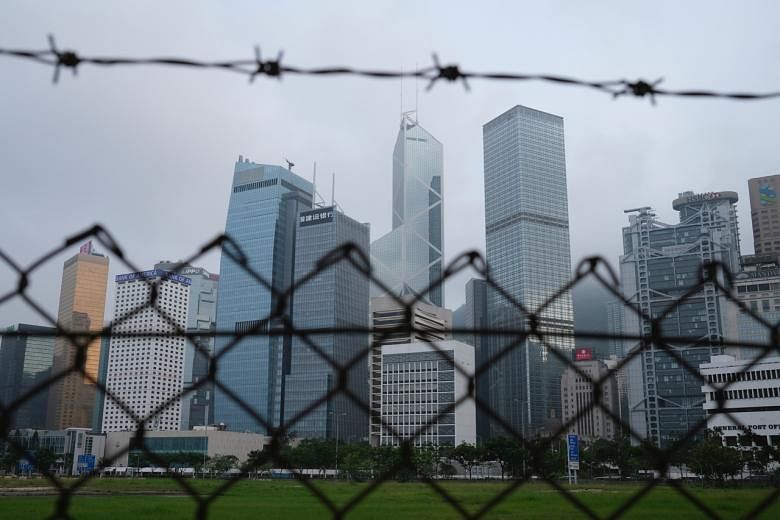HONG KONG (BLOOMBERG) - Hong Kong labour unions and students are seeking support for a strike against national security laws that China plans for the city, aiming to reignite a protest movement that's lost momentum because of the pandemic and the increasing threat of arrest.
A representative for the organisers said booths opened across the city at 10am on Saturday (June 20), seeking to attract at least 36,000 signatures to go ahead with a general strike - a daunting task given that the participating unions only have about 14,000 members.
Separately, the Secondary School Students Action Platform affiliated with prominent activist Joshua Wong said it began asking students to sign up for a mass boycott of classes, targeting 6,000 people to take part.
The referendum represents the latest effort by the pro-democracy camp to gain momentum for a campaign that's floundered this year. Despite its long odds of success, the event had drawn public condemnation from various mainland and Hong Kong authorities in its run-up, signalling that it was being particularly scrutinised by Beijing.
The move comes at a sensitive time. China's top legislative body in Beijing has been holding closed-door discussions about the controversial new national security law, which has reignited tensions in the city and fuelled fears that the Asian financial centre's unique freedoms were being eroded.
It's unclear what the Standing Committee of the National People's Congress will say after a three-day meeting scheduled to end Saturday. The city is bracing to hear details of measures to punish acts of secession, subversion, terrorism and collusion with foreign forces in the former British colony.
Mr Tam Yiu-chung, the city's sole delegate to the legislative body, said the committee only did a preliminary review of the legislation, Radio Television Hong Kong reported on Saturday.
The referendum has caught the attention of authorities. Mr Chen Dong, vice-director of China's Liaison Office in Hong Kong, blasted the student group earlier this week for "entrapping students in the vortex of politics and illegal violence."
Days earlier, the Hong Kong and Macau Affairs Office in Beijing called out the organisers, including 23-year-old Mr Wong, one of the leaders of the pro-democracy Demosisto political party, for adding to their "list of sins" with the referendum.
Meanwhile, the Hong Kong government urged the public to stay away from such "meaningless activities."
Should the unions and students go ahead with their walkouts, they would come at a time when the government is trying to revive its hobbled economy by easing social-distancing measures as the spread of the virus subsides locally. The city's economy shrunk by a record 8.9 per cent last quarter and the unemployment rate surged to a 15-year high in May.
The last time there was a mass worker strike in Hong Kong was in February, when thousands of medical workers walked off their jobs for five days over the government's handling of the coronavirus pandemic.
Other recent calls for a general strike, including one last month to stop the legislature from passing a Bill that would criminalise disrespect toward China's national anthem, have flopped.
That's in contrast to November last year, when protesters disrupted subway lines and blocked a cross-harbor tunnel, while police clashed with university students, prompting the government to close schools and companies to tell employees to work from home.

